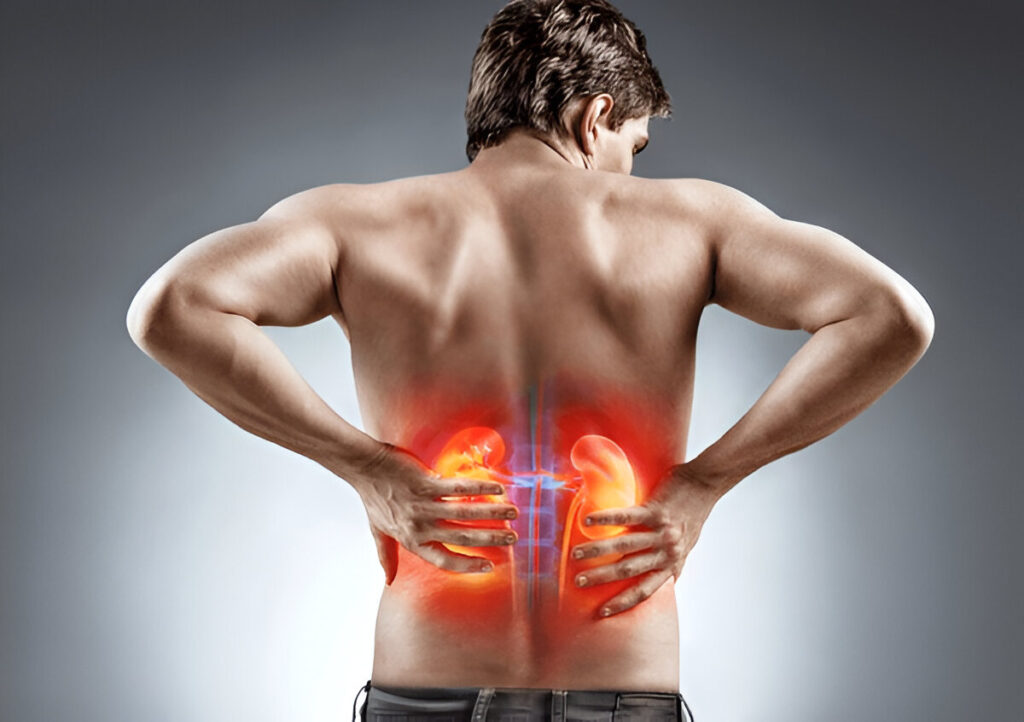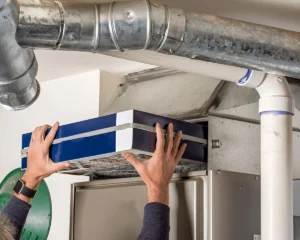Kidney Stones Treatment for Men (How is it done?)

Kidney stones are a common and often painful condition that affects many men. These small, hard deposits form in the kidneys and can lead to significant discomfort, ranging from sharp back pain to difficulty urinating.
For men, kidney stones can be particularly troubling due to anatomical and lifestyle factors that may increase their risk. You may be recommended an appointment with a men’s health specialist for kidney stones treatment of your stones when they cause pain, complications, or block urine flow. Read more: https://aareurology.sg/categories/kidney-treatments/.
If you’ve experienced the excruciating pain of kidney stones, you’re not alone. Fortunately, advances in medical treatments mean that most cases can be effectively managed.
This article will explain the causes of kidney stones. It will also clarify what happens when kidney stones occur, and the treatment options available for men.
What Is the Main Cause of Kidney Stones in Men?
The most significant risk factor for kidney stones in men is dehydration. When you don’t drink enough fluids, your urine becomes concentrated which reduces the amount of liquid available to dissolve salts and minerals.
This concentration creates an environment where kidney stones are more likely to form. To prevent this, men should aim to produce at least 2.5 liters of urine per day.
This means drinking plenty of water and avoiding excessive consumption of dehydrating beverages like alcohol or caffeine. Other factors that may also contribute to you developing kidney stones include:
- Diet: Eating too much salt, animal protein or foods rich in oxalates— like spinach, nuts, and chocolate—can increase the risk. These substances promote the accumulation of calcium oxalate, a common component of kidney stones.
- Dehydration: Excessive sweating from exercise, hot climates, or sauna use reduces urine output. This may in turn cause mineral concentration in the kidneys.
- Medical Conditions: There are also medical issues that are known to raise the likelihood of kidney stones. Examples include hyperparathyroidism, renal tubular acidosis, and urinary tract infections,.
- Obesity: Obesity can disrupt the body’s metabolism, leading to an increased risk of developing calcium-containing kidney stones. This occurs due to elevated levels of calcium in the urine, which contributes to stone formation and further strain on kidney function.
What Happens If a Man Gets a Kidney Stone?
Kidney stones are sometimes called “the great mimicker” because their symptoms are similar to other conditions. If you’re aware of this you may wonder; what happens if a man gets a kidney stone?
When kidney stones form, they may or may not cause symptoms depending on their size and location. For many men, the first sign is pain—sometimes severe and unrelenting. Common symptoms include:
- Intense pain in the lower back, abdomen, or groin.
- Pain that radiates to the testicles.
- Pain that comes and goes in waves.
- Blood in the urine, which may appear pink, red, or brown.
- Cloudy or foul-smelling urine.
- A burning sensation when urinating.
- A frequent and urgent need to urinate, even if only small amounts come out.
Small kidney stones may pass unnoticed, but even tiny stones can cause significant discomfort. In severe cases, larger stones may block the urinary tract, leading to complications such as infection or kidney damage.
If you suspect you have a kidney stone, contact your provider. They may order imaging tests like an ultrasound or CT scan to confirm the diagnosis and determine the size and location of the stone. Prompt treatment is crucial, especially if symptoms include fever, chills, or vomiting, as these may indicate an infection requiring immediate attention.
What Should a Man Do If He Has Kidney Stones?
Kidney stones can be painful, but effective treatment depends on the size of the stone and the severity of symptoms. Here are five things a man should do if diagnosed with kidney stones:
- Wait for the Stone to Pass: Small stones often pass naturally within four to six weeks. During this time drink plenty of fluids, especially water, to increase urine production and help flush the stone out. If you’re experiencing discomfort, you can use the over-the-counter medications like ibuprofen or naproxen for pain relief.
- Take Medication: Your doctor may prescribe medications to ease the process. For example, you may be prescribed tamsulosin which helps relax the ureter, making it easier for the stone to pass. You may also be prescribed preventive medications to reduce the risk of forming new stones, depending on their composition.
- Surgery: Larger stones or those which cause severe symptoms may require surgical removal. Common procedures include Shock Wave Lithotripsy (SWL) which breaks stones into smaller pieces for easier passing and ureteroscopy which removes stones via a thin scope inserted into the urethra.
- Seek Urgent Medical Care: You should seek immediate attention for kidney stones if you experience severe, unmanageable pain, blood in urine and symptoms of infection, like fever or chills.
- Prevention: You may also be advised to adopt dietary changes to reduce recurrence. Among these adjustments, it may help to increase calcium-rich plant foods like yogurt, seeds, and beans, drink lemon water to boost citrate levels, which prevent stone formation, limit sodium to less than 2,300 milligrams daily and reduce consumption of animal protein.
How Are Kidney Stones Treated in Males?
The specific treatment methods for kidney stones in men vary based on the stone’s size, type, and symptoms. Most small kidney stones pass naturally. To aid this process, men should drink plenty of fluids to flush the urinary system.
You may also want to take pain relievers to manage discomfort and use a strainer to catch the stone for laboratory analysis. For larger stones, you may need more advanced treatments including extracorporeal shock-wave lithotripsy (ESWL) which is a non-invasive procedure that uses ultrasound waves to break stones smaller than 2 cm into smaller fragments that can be passed naturally.
The other treatments you may benefit from include percutaneous nephrolithotomy (PCNL) for larger stones, and endoscopy. If other methods fail, you may be recommended open surgery to remove particularly large or complex stones.
To prevent recurrence, lifestyle modifications are key. These include staying hydrated, maintaining a balanced diet, and avoiding foods high in oxalates.
It’s a Wrap!
Kidney stones maybe painful but are a manageable condition for men. Whether through lifestyle changes, medication, or medical procedures, relief is possible.
If you suspect you have kidney stones, consult a men’s health specialist today to discuss your options and develop a treatment plan tailored to your needs. Book an appointment now at;
Aare Urocare – One-Stop Incontinence Centre | Dr Fiona Wu | Kidney Stones Removal | UTI Vaccine Singapore
6 Napier Rd, #10-06 Gleneagles Medical Centre, Singapore 258499
+65 6252 4681https://aareurology.sg/






